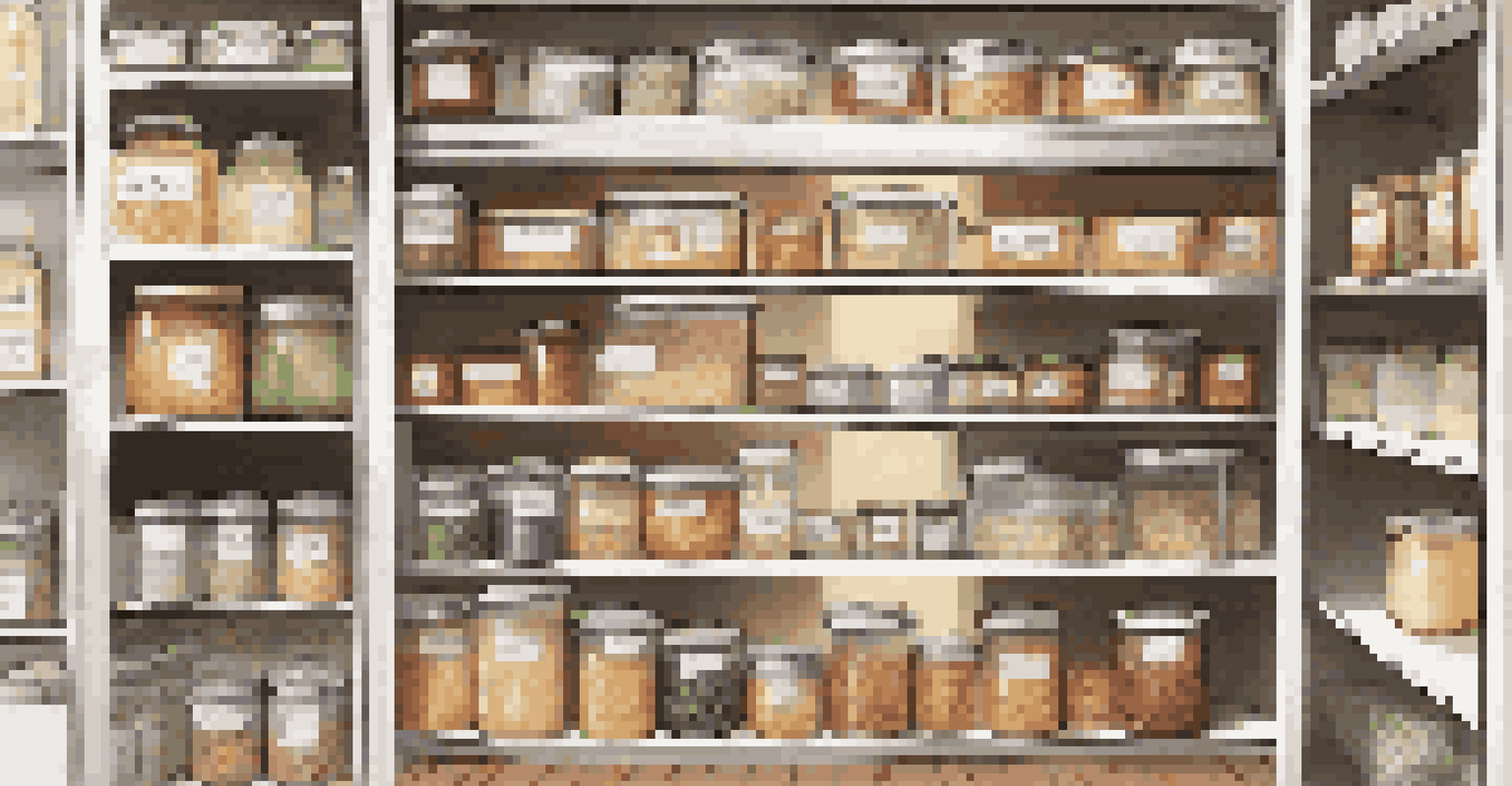Tips for Reducing Grocery Expenses: Eat Well on a Budget

Plan Your Meals to Save Money and Time
Meal planning is the cornerstone of smart grocery shopping. By dedicating a little time each week to plan your meals, you can create a focused shopping list that reduces impulse buys. Plus, knowing what you’ll eat each day helps you avoid last-minute takeout, which can quickly drain your budget.
A budget is telling your money where to go instead of wondering where it went.
Start by checking what you already have at home. This not only cuts down on waste but also gives you a foundation for your meal plan. For instance, if you have chicken and some vegetables, you might plan for stir-fry or a hearty soup.
Don't forget to factor in your weekly schedule. If you know you have a busy day ahead, plan for something quick and easy, like a one-pot meal. This way, you're less likely to grab unhealthy (and costly) fast food on the go.
Create a Budget to Keep Track of Spending
Setting a grocery budget is crucial for managing your expenses effectively. Start by analyzing your previous spending to determine how much you can realistically allocate for groceries each month. This gives you a clear target to aim for and helps prevent overspending.

Once you establish your budget, stick to it by keeping a running tally as you shop. Many apps can help you track your expenses in real time, making it easier to stay within budget. This approach can also highlight areas where you may be overspending, such as snacks or convenience items.
Plan Meals to Save Time and Money
Meal planning helps create a focused shopping list, reducing impulse buys and avoiding costly last-minute takeout.
Remember, your budget can be flexible. If you have a week where you need to spend a bit more on fresh produce, adjust your budget accordingly for the following week. This adaptability ensures that you can still enjoy nutritious foods without straining your finances.
Use Coupons and Discounts to Your Advantage
Coupons and discounts can significantly lower your grocery bill if you know how to use them. Many grocery stores offer weekly flyers and digital coupons that provide substantial savings on popular items. Take a moment to check these out before heading to the store.
The cost of living is going up, but so is the cost of living well.
Additionally, consider using cashback apps and loyalty programs. These can sometimes offer deals that aren't available through traditional coupons. For example, some apps give you cashback on certain products after you upload your receipt, making it feel like you're getting paid to shop.
However, it’s important to only use coupons for items you actually need. Shopping with a coupon mindset can lead to buying things that aren't necessary, ultimately negating the savings you hoped to achieve.
Buy in Bulk for Cost-Effective Shopping
Buying in bulk can be a game-changer for your grocery budget, especially for non-perishable items and staples. Items like rice, pasta, and canned goods often come at a lower price per unit when purchased in larger quantities. Just make sure you have the storage space to accommodate these purchases.
Bulk buying is also fantastic for families or those who regularly prepare meals in larger batches. For instance, purchasing a big bag of frozen vegetables can save money and time while ensuring you always have a healthy option on hand.
Use Coupons for Bigger Savings
Utilizing coupons and cashback apps can significantly lower your grocery bill, but it's essential to only buy what you truly need.
However, be cautious not to go overboard. Only buy in bulk for items you know you will use before they expire. This prevents waste and ensures that your savings don't turn into losses.
Choose Seasonal and Local Produce
Eating seasonally can drastically reduce your grocery costs while allowing you to enjoy fresh, flavorful produce. Seasonal fruits and vegetables are typically less expensive and more abundant, meaning you get the best value for your money. For example, buying strawberries in summer can be far cheaper than in winter.
Shopping at local farmers' markets is another great way to find seasonal produce. Not only can you often find better prices, but you’re also supporting local agriculture. Engaging with farmers can also provide insights into how to prepare their produce in delicious ways.
As a bonus, seasonal produce tends to be more nutrient-dense since it’s harvested at its peak. So, not only are you saving money, but you're also eating healthier, which is a win-win for your budget and your body.
Opt for Store Brands Over Name Brands
When grocery shopping, don’t overlook store brands—they often offer the same quality as name brands at a fraction of the cost. Many store-brand products are manufactured by the same companies that produce well-known brands, so you're not sacrificing quality for savings.
For example, a store-brand pasta might taste just as good as its pricier counterpart, but at a significantly lower price. This applies to a wide range of products, from canned goods to frozen meals. Over time, switching to store brands can lead to substantial savings.
Buy Seasonal Produce for Value
Choosing seasonal and local produce not only cuts costs but also ensures you enjoy fresher, nutrient-dense fruits and vegetables.
Experiment with store brands to find the ones you like best. You may discover that you prefer them, which can make your grocery shopping even more budget-friendly.
Minimize Food Waste with Smart Storage Techniques
Food waste is not only bad for the environment, but it can also take a toll on your grocery budget. To minimize waste, invest time in learning proper food storage techniques. For example, keeping herbs fresh by placing them in water can extend their life and prevent them from wilting before you have a chance to use them.
Additionally, regularly check your pantry and fridge for items nearing their expiration dates. This allows you to prioritize those items in your meal planning and use them up before they spoil. Creating meals from leftovers can also turn what might be waste into a delicious new dish.

Consider composting food scraps as well. Not only does this reduce waste, but it also gives you nutrient-rich compost for your garden, creating a sustainable cycle. By being mindful of how you store and use food, you can stretch your grocery budget further.